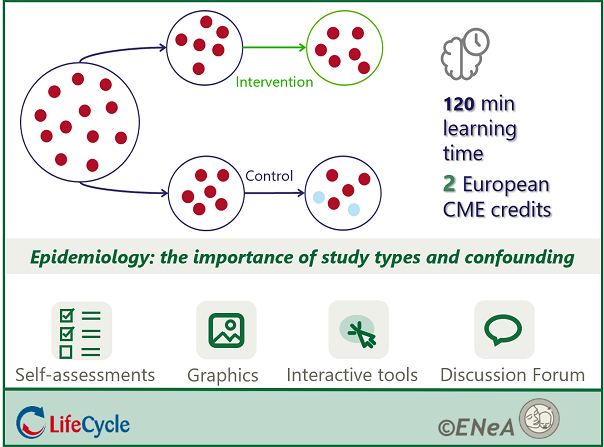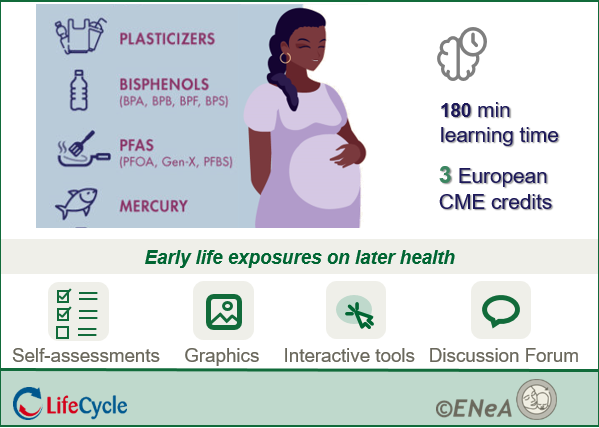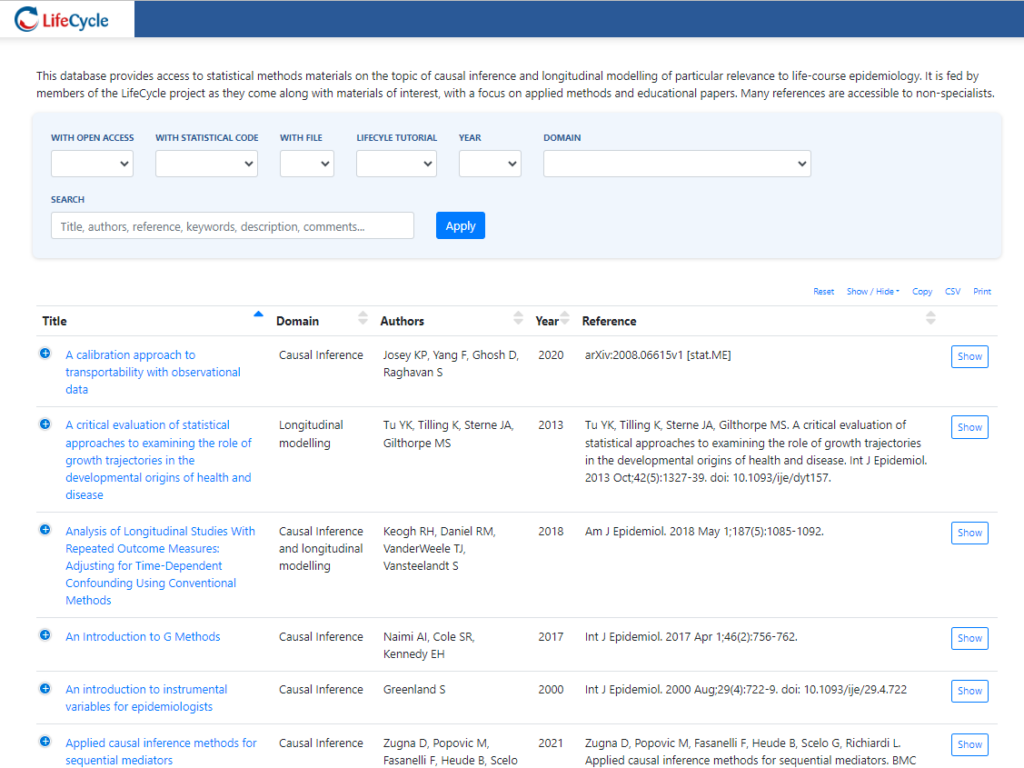E-learning Modules
For Task 11.3, the LifeCycle project has set up two e-learning modules. These modules compile the latest evidence in the topics investigated in the LifeCycle Project, including some of its research outputs. The modules are open-access, please register on the platform to gain access.
E-learning Module 1 - Epidemiology: the importance of study types and confounding
Epidemiology is the study of the distribution, patterns and determinants of health and disease conditions in defined populations. Choosing the appropriate study design is essential to successfully answering your research question. In observational studies, where the exposure is not assigned randomly by a researcher, bias due to confounding is the main threat to a valid estimate of an effect.
In this module, several descriptive, associational and experimental epidemiological study designs are described in detail. The concept of confounding and, in specific, of time-varying confounding, and examples in life course epidemiology are also presented.
Course content:
Unit 1: Understanding different types of applied epidemiology
Unit2: The concept of confounding and examples in life course epidemiology
E-learning Module 2 - Early life exposures on later health
Extensive research has now established that parental health and environmental facotrs before conception and during the first 1000 days of a child’s life (pregnancy and first 2 years of age) are of critical importance for the physical and mental health development of the offspring. These have life-long consequences for the risk of non-communicable diseases, educational achievement, health, and wellbeing. Main parental risk factors during this critical period include malnutrition (under and over-nutrition, micronutrient deficiencies), smoking, excessive alcohol consumption, environmental toxicants, and stress.
The units in this module provide an overview of the latest evidence for early life risk factors associated with childhood asthma and mental health and provide recommendations for optimum nutrition and suggestions for preventive public health interventions.
Course content:
Unit 1: Preconception risk factors for Non-Communicable Diseases (NCDs) and interventions
Unit2: Early-life exposures and childhood asthma
Unit3: Early-life exposures and childhood mental health
Workshop Tim Cadman - Trajectory Analysis
Tutorials
- Santos S. et al. (2019). Sources of confounding in life course epidemiology. J Dev Orig Health Dis 10(3): 299-305. Click here for the Open Access version
- Santos S. et al. (2020). Applying the exposome concept in birth cohort research: a review of statistical approaches. Eur J Epidemiol. 35: 193-204.
- Hughes RA et al. (2021). Combining Longitudinal Data From Different Cohorts to Examine the Life-Course Trajectory. Am J Epidemiol. 190: 2680-2689.
- Zugna D. et al. (2022). Applied causal inference methods for sequential mediators. BMC Med Res Methodol 22(1): 301.
- Popovic M. et al. (2024). Regression discontinuity design in perinatal epidemiology and birth cohort research. Front Public Health 12:1377456
- Scelo G. et al. (2024). Transporting results in an observational epidemiology setting: purposes, methods, and applied example. Front Epidemiol 4:1335241
- Lawlor D. (2022). Triangulation Tutorial. Slide presentation. Click here to download the presentation.
Statistical Methods Database
Please find the statistical methods database here: https://lifecycle.cpo.it/
The statistical methods database provides access to statistical methods materials on the topic of causal inference and longitudinal modelling of particular relevance to life-course epidemiology. It is fed by members of the LifeCycle project as they come along with materials of interest, with a focus on applied methods and educational papers. Many references are accessible to non-specialists. The database can also be accessed via the Variable Catalogue.



